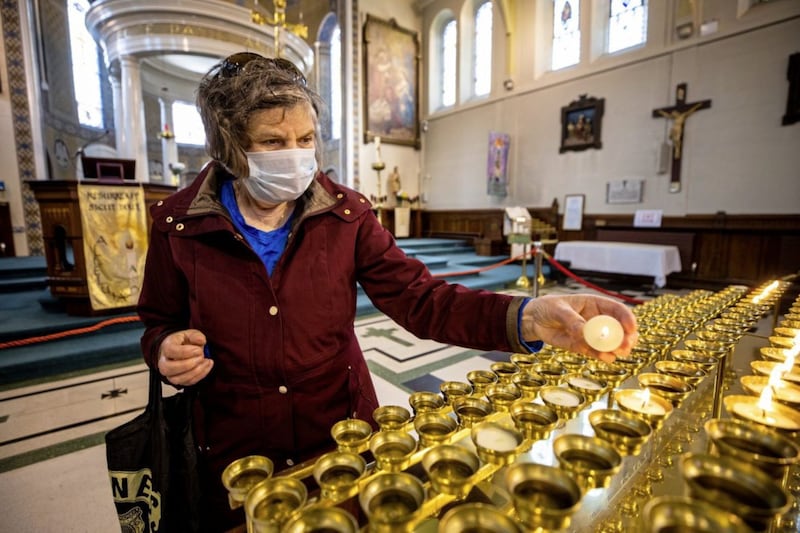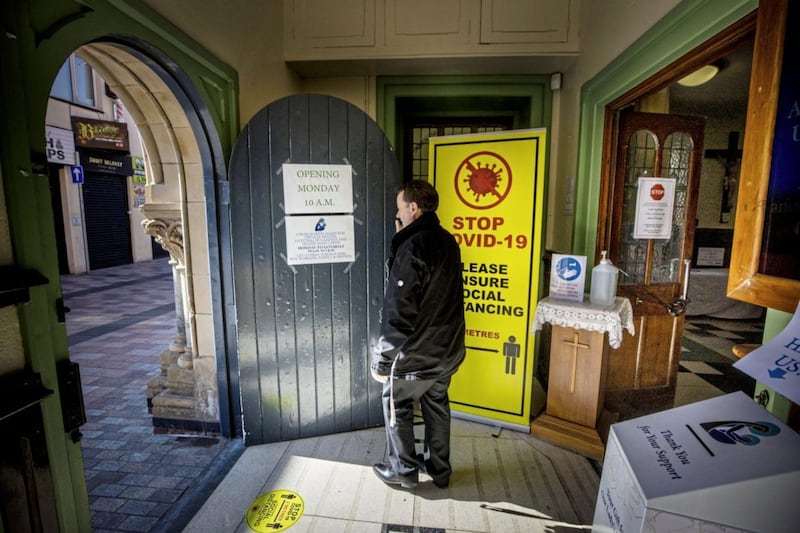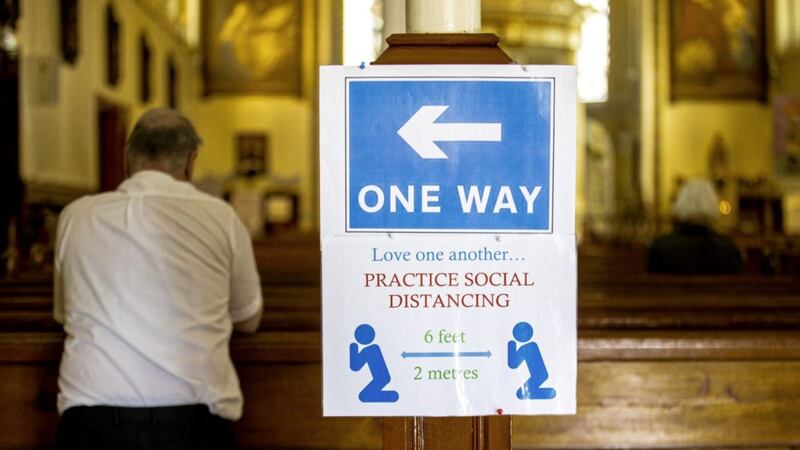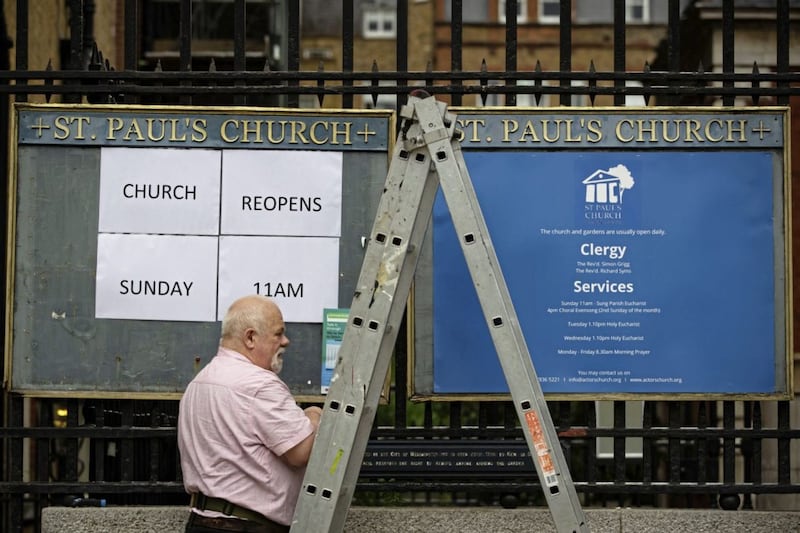RECENTLY I was sent a photograph of a father and daughter watching our parish's first ever live-streamed Mass on a mobile phone.
It is an image that reminded me of my own childhood growing up in a Catholic family where Sunday Mass was simply part of our life.
Since ordination, providing the Mass for the people is what I do. It is part of my priestly identity.
So what happens when that is no longer possible? What happens when, in response to the government's request to stay at home, protect the NHS, and save lives, a decision is taken to close churches and forbid public acts of worship?
For many priests this has been an existential crisis. What is a shepherd without his sheep? Will the people come back when the lockdown is lifted?
Can we return to ministering as if nothing had happened? How will our parishes survive financially?
The coronavirus has brought to the forefront the tension between maintenance and mission.
It has taken from us the model of the Church in which we minister to those who show up.

Now the only option is to become what Pope Francis describes in The Joy of the Gospel: parishes "capable of self-renewal and constant adaptivity... the Church living in the homes of her sons and daughters" rather than "a useless structure out of touch with people, or a self-absorbed group made up of a chosen few" (Evangelii Gaudium, 27).
The only option for us now is to become once again a missionary Church.
As we look towards an easing of the restrictions I think these extraordinary circumstances raise questions for the future.
Our parishes need to be engaged in both maintenance and mission but Pope Francis has been very forthright in his condemnation of "self-referential" parishes, and of that clerical mindset that sees the Church in terms of administering sacraments and RCIA programmes.
As the Holy Father puts it: "Mere administration cannot be enough. Throughout the world, let us be permanently in a state of mission" (EG 25).
The Church exists to evangelise, that is to proclaim Christ in such a way that people come to conversion.
We have to minister to people who show up, but we are called to much more than that. It would be a mistake to go back to an exclusively maintenance mindset.

A characteristic of the maintenance model of the Church is that we sacramentalise people without evangelising them. We now have a wonderful opportunity to rediscover the primacy of the evangelisation.
In the Church it has always been Word and Sacrament. In fact, when we look at the documents of the Second Vatican Council and the Catechism of the Catholic Church, it is Word then Sacrament. This Sacramental Fast is a time for us to encourage people to feast of the Word of God.
The present situation is also a wonderful opportunity to move away from the clericalism that has hampered the mission of the Church. That mission does not depend on a building and nor is it carried out exclusively by the ordained minister.
This is a time to mobilise the baptised. We cannot continue to use lay people to build up the Church. It is time to use the Church to build up lay people, equipping them to become the primary agents of evangelisation in today's society.
Already during our extraordinary Lent in isolation we have seen examples of committed lay faithful taking up that challenge.
For many priests this has been an existential crisis. What is a shepherd without his sheep? Will the people come back when the lockdown is lifted? Can we return to ministering as if nothing had happened? How will our parishes survive financially?
We are witnessing a new movement of the Spirit raising up people "with a new evangelising fervour and a new capacity for dialogue with the world whereby the Church is renewed" (EG 29). It would be a tragedy if we thought we could return to business as usual.
Finally, the recovery of our missionary identity will necessitate structural and cultural changes in our dioceses.
Pope Francis acknowledges "there are ecclesial structures which can hamper efforts at evangelisation" (EG 26). Often an overly bureaucratic culture within dioceses will discourage rather than facilitate innovation.
Many priests are reluctant to try new things if the message from central office focuses on risk aversion and pitfalls rather than the advantages of adopting new methodologies.
'Ecclesial structures' include our parish and deanery configuration. Consideration of priestly well-being, as well as the financial problems caused by the lockdown, require us to ask whether it is right to keep current structures on life-support rather than reconfigure our deaneries and parishes for mission.

Fr Stephen Langridge, parish priest of St Elizabeth of Portugal Parish in Richmond, Surrey preached the recent vocations retreat for Down and Connor Diocese. Fr Langridge is an associate of the Divine Renovation Network in the UK.








